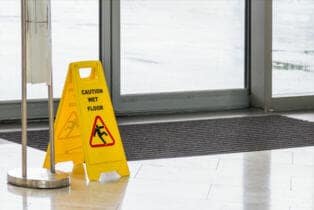What are Tennessee’s Premises Liability Laws?
November 7th, 2019 by Attorney John Colvin

All property owners owe a certain degree of care to ensure that their premises are safe for visitors. How much care need be taken, however, depends in large part on the status of the visitor. If, for instance, a person is invited onto a retail store’s premises for business purposes, that company will need to take great care in keeping the property safe. Homeowners who invite friends onto their property for a barbecue, on the other hand, although still required to take reasonable steps to keep that property safe, will not be held to the same high standard. Trespassers, of course, are owed the lowest duty of care, unless they are children.
The differing standards that property owners owe to visitors is only one part of why these types of cases are so complex, so if you or a loved one were recently hurt while visiting someone else’s property, it is important to contact an experienced Tennessee personal injury attorney who is well-versed in these matters and can ensure that your interests are protected.
Premises Liability Theory
In Tennessee, a person can only recover under the legal theory of premises liability in a personal injury claim if he or she can prove the standard elements of negligence, which means that plaintiffs must be able to demonstrate that:
-
- The property owner owed them a duty of care;
- The property owner breached that duty; and
- The plaintiff suffered an injury as a result of that breach.
However, in addition to proving that these elements have been fulfilled, slip and fall plaintiffs must also establish that:
-
- The condition that caused the plaintiff’s injury was created by the property owner, or its operator or agent; or
- The condition was created by a third party, but the owner had actual or constructive notice of its existence.
Proving that a property owner had actual notice of a dangerous hazard on his or her property can be difficult, especially when a defendant alleges that he or she had no idea that the hazard existed. Fortunately, under Tennessee law, plaintiffs can still recover compensation if they can provide proof that the property owner had constructive notice of the hazard. This can be achieved by:
-
- Demonstrating that the conditions existed for so long that the owner should have become aware of it if he or she had been exercising reasonable care; or
- Demonstrating that a pattern of conduct, a general continuing condition, or a recurring incident caused the dangerous condition.
Finding evidence of constructive notice is extremely important to the outcome of a premises liability case, which depends largely on proving that a plaintiff’s injury was reasonably foreseeable and that the defendant could have taken steps to prevent it.
Schedule an Initial Case Review with a Dedicated Winchester, TN Premises Liability Lawyer
Premises liability is a complex area of the law that can be difficult to navigate, so if you were injured while on someone else’s property and have questions about your legal options, please call (931) 962-1044 to set up an initial case evaluation with experienced premises liability attorney John R. Colvin Attorney at Law today.
Disclaimer*
The information on this website is for general information purposes only. Nothing on this site should be taken as legal advise for any individual case or situation. This information is not intended to create, and receipt or viewing does not constitute, an attorney-client relationship. No representation is made that the quality of the legal services to be performed is greater than the quality of legal services performed by other lawyers.

